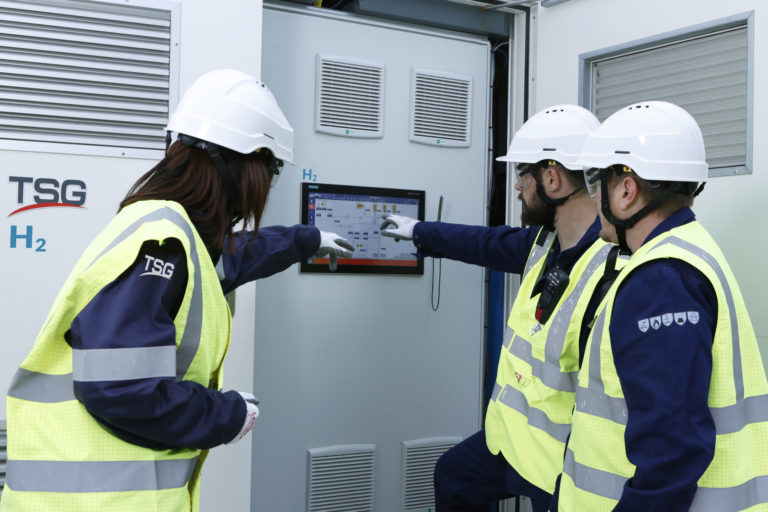Understanding Alternative Fuels
1. What is Compressed Natural Gas (CNG)?
CNG is natural gas, primarily methane, that is stored and transported under high pressure in its gaseous state. It is used as an alternative fuel for vehicles and is known for its lower emissions and cost-effectiveness.
2. What is Liquefied Natural Gas (LNG)?
LNG is natural gas that has been cooled to approximately -162°C, turning it into a liquid for easier storage and transport. This process reduces its volume significantly, making it ideal for long-distance haulage and marine applications.
3. What is hydrogen fuel?
Hydrogen is a zero-emission fuel that can be used in fuel cells or internal combustion engines. It is produced from various sources, including natural gas, water (via electrolysis) and biomass.
4. What is biogas?
Biogas is a renewable energy source produced through the anaerobic digestion of organic materials such as agricultural waste, food waste, sewage and manure. It is primarily composed of methane and carbon dioxide.
Benefits and Applications
5. What are the benefits of using CNG?
CNG is often cheaper than conventional fuels and produces fewer carbon emissions. It also results in lower engine emissions of nitrogen oxides (NOx) and particulate matter, making it a cleaner option for fleet and commercial use.
6. What are the benefits of using LNG?
LNG has a higher energy density than CNG and is more efficient for long-haul transport. It also produces fewer emissions than diesel and other fossil fuels, supporting sustainability goals.
7. What are the benefits of using hydrogen?
Hydrogen fuel produces only water vapour when used in a fuel cell, making it a clean energy source. It can also be generated from renewable resources, supporting the transition to low-carbon transport.
8. What are the benefits of using biogas?
Biogas helps reduce greenhouse gas emissions, provides a renewable energy source and supports waste management. It can be used for electricity generation, heating or as a vehicle fuel when upgraded to biomethane.
Storage, Transport and Dispensing
9. What is the difference between CNG and LNG?
CNG is stored as a gas under high pressure, while LNG (Liquefied Natural Gas) is cooled to a liquid state at extremely low temperatures. LNG has a higher energy density, making it more suitable for long-distance transport, whereas CNG is ideal for local and regional use.
10. How is CNG stored and dispensed?
CNG is stored in high-pressure cylinders and dispensed through either fast-fill or time-fill stations. Fast-fill stations are designed for quick refuelling, while time-fill stations are used for vehicles that can be refuelled over several hours, such as overnight.
11. How is LNG stored and transported?
LNG is stored in insulated cryogenic tanks and transported using specially designed ships, trucks or railcars. TSG UK supplies and installs LNG dispensers suitable for commercial and industrial applications.
12. How is hydrogen stored and transported?
Hydrogen can be stored as a gas in high-pressure tanks or as a liquid at cryogenic temperatures. It is transported via pipelines, road tankers and ships, depending on the application and volume required.
13. How is biogas produced and used?
Biogas is produced in anaerobic digesters and can be used directly for heat and power or upgraded to biomethane for injection into the gas grid or use as a transport fuel.
Safety and Environmental Impact
14. What are the safety considerations for CNG?
CNG is generally safe when handled properly. Vehicles and storage systems need regular inspections and maintenance to stay safe. TSG UK provides inspection and maintenance services to ensure safe operation.
15. What are the environmental impacts of biogas?
Biogas production helps reduce methane emissions from landfills and converts organic waste into a usable energy source. The focus on reusing waste materials and maximising resources represents a more sustainable approach to energy production. Biogas also contributes to carbon reduction targets and helps lower reliance on fossil fuels.
Installation and Support
16. Who installs and services CNG, LNG and hydrogen dispensers?
TSG UK Solutions Ltd supplies, installs and maintains a full range of gas dispensers, including CNG, LNG and hydrogen systems. We also provide ongoing support, compliance checks and maintenance services tailored to your site’s needs.

